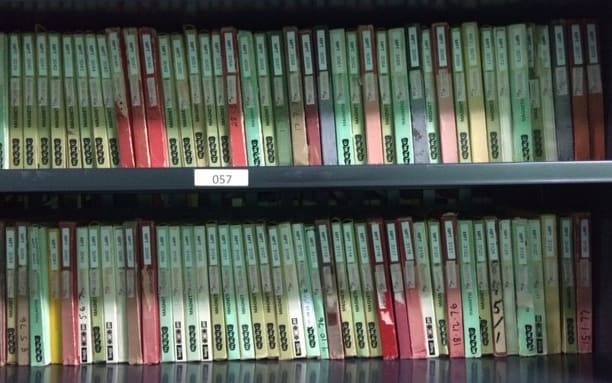A major restructure at the national film and sound archive is being met with fears that access to New Zealand's past will be irreversibly lost.

Nga Taonga Sound and Vision Photo: Supplied
Ngā Taonga Sound and Vision is set to disestablish 29 roles next month, replacing them with as many new roles that aim to improve public access to the historic visual and radio content.
But those who spent years working in the archive's collection say that won't be the case.
Lawrence Wharerau worked as a film archivist for Ngā Taonga for almost 20 years until he walked out nine weeks ago.
"I could not sign up to the new direction Ngā Taonga is taking. It was a situation of - that place isn't going to change direction on what it's doing, so I will."
He said that latest restructure - which takes effect next month - is the sixth in seven years.
Ngā Taonga says this is the fourth major restructure since 2014. It says "organisational restructures" were done in 2017 and 2014, and a restructure in 2015/16 was triggered when Ngā Taonga took over the TVNZ archive.
RNZ's sources have since confirmed that six restructures have occurred since 2014 - some of which only affected sole departments.
Wharerau, who was the senior curator of Māori content, said each reshuffle showed a failure to value the wealth of experience that was left.
"Institutional and organisational memory in an archive - a place and house of memories - is huge. If you're just going to allow that knowledge to walk out the door, that almost tells you what value it is that people might be putting on that."
Staff RNZ spoke to pointed to a huge backlog of uncatalogued film as a major issue, which Ngā Taonga promises to address under the new structure.
Peter Sugden worked for three decades in the film archive in Avalon, and also left this year, when he faced being shifted to the National Library.
Given that most of his requests involved accessing uncatalogued footage in the vault based at Avalon, he did not feel he could still do his job.
He said the public stood to lose access to hundreds of hours of uncatalogued film footage if the collection was managed by people unfamiliar with it.
"It's our history, whether it be political or social history, race relations, sports, drama, there's just endless amounts that need to be preserved and accessible."
When he left in January, there were "more people working there who weren't archivists than who were", Sugden said.
"You just sort of feel that they seem to be losing their way as to doing what they're meant to be doing."
No-one from Ngā Taonga would be interviewed, but in a statement, it rejected concerns that changes would erode the archive's purpose.
"The purpose of the organisation redesign is to ensure we have a sustainable archive that will deliver on New Zealander's expectations in terms of both keeping the collections safe and making them accessible."
Asked about the loss of expertise, it stated: "We will have the same number of [full time staff] under the new structure, so we expect that we will not lose many long-term staff.
"As accessibility is a key purpose of the redesign we also expect that it will have a positive effect on the public's ability to connect with the collections."
No affected staff from Ngā Taonga were prepared to go on record while they continued to fight for their jobs.
But they said they felt sick, anxious and frustrated about the plan.
Under the current plan, all staff in the sound archive at the Christchurch satellite office face redundancy as their roles will shift to Wellington.
John Kelcher worked in the sound archive for 20 years - including when it was housed under Radio New Zealand. He was made redundant in 2017.
He said it took decades to understand the material and where to find it.
"Sound archives are not like books, they're not like paper, they're not like paintings. You can't see them at a glance. You have to listen to them.
"It's knowing how to navigate a collection that's built up through thousands of hours of listening. I think it's really difficult for someone to come in a suddenly just turn it on."
Joe Kelly from the staff union, the PSA, said staff from the sounds archives made the transition from RNZ in 2012 in good faith, believing their expertise would be valued at Ngā Taonga.
"And that faith and trust turns out to have been misplaced. Now they're being told they're not needed. Their skills and expertise don't belong in the organisation, and there's no real indication that's going to be replaced."
Kelly authored a letter signed by 29 staff requesting the Christchurch office remain and opposing redundancies and pay cuts.
He said none of these concerns were acted on.
Ngā Taonga said it held a "robust process" regarding the proposal, starting with workshops in June, and staff feedback "was collated and carefully considered prior to our final decision being announced on 14 October".
The plan comes into effect 23 November.


